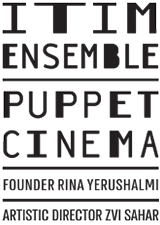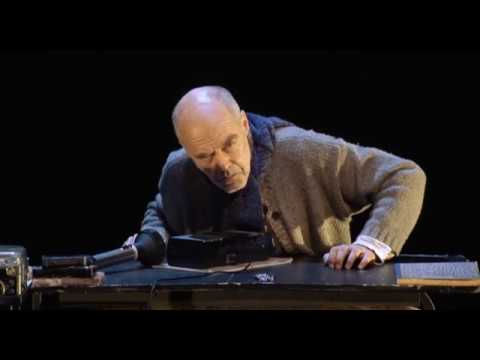About
In an era when more than ever it’s all about documenting and being documented, Krapp could be any one of us. “Krapp”, one can say, is a play with no theatre. He listens to tapes of himself in order to decide what to record this evening. All that is heard or spoken are just fragments, scraps of thoughts that are never finished, from the past, the present and the future. All that the spectator can do is to follow Krapp and the words from moment to moment, in the same way one follows a musical piece from note to note. One of the titles that Beckett thought of giving the play was “Late evening, in the future”. The space is designed to be something between a stage space and his study. In art and theatre is it possible to put a halt on the passing time, and give us the possibility to watch Krapp before he ends his voyage, to meet him in his disturbed and hallucinatory inner self. At the point in which the play stops (or ends) I chose to revisit words and moments in his life in a different theatrical language that includes music, video, movement and lighting – to the theatre.
Credits
By: Samuel Beckett.
Translated by Dori Parnes.
Adapted and directed by Rina Yerushalmi.
Music: Avi Balleli.
Set design and costumes: Yehudit Aharon.
Video: Nimrod Zin.
The actor: Doron Tavori (and his shadow…)





